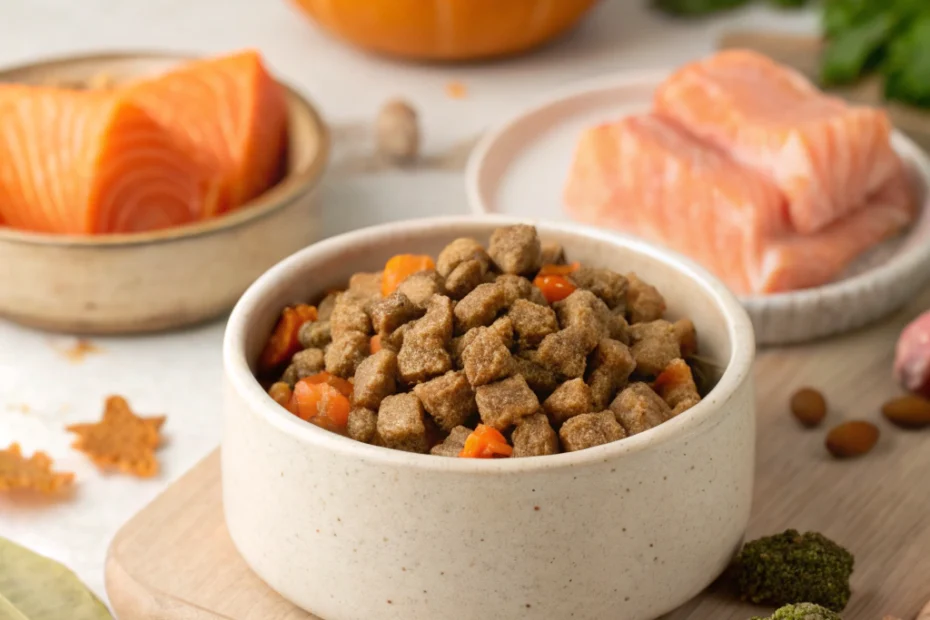At-a-Glance
As your cat ages, their nutritional needs change, making it crucial to find the best senior cat food that may support their health and well-being. Senior cats often require a diet that addresses specific age-related concerns such as joint health, weight management, and digestive support. Understanding these needs can help you make informed decisions about your cat’s diet, ensuring they remain healthy and happy in their golden years.
How to Choose
Choosing the best senior cat food involves considering several factors that can impact your cat’s health. Here are some key points to keep in mind:
Nutritional Needs
Senior cats may benefit from foods that are rich in protein to maintain muscle mass, while also being lower in calories to prevent obesity. Look for foods that include high-quality protein sources and are balanced in essential nutrients.
Joint Health
As cats age, they may experience joint stiffness or arthritis. Foods with added glucosamine and chondroitin may help support joint health and mobility.
Digestive Health
Older cats can have sensitive stomachs. Foods that are easy to digest and include prebiotics or probiotics may support a healthy digestive system.
Flavor and Texture
Senior cats may become picky eaters. Offering a variety of flavors and textures can encourage them to eat and enjoy their meals.
Safety & Setup
When introducing new food to your senior cat, it’s important to do so gradually. Start by mixing a small amount of the new food with their current diet, gradually increasing the proportion over a week. This can help prevent digestive upset and allows your cat to adjust to the new flavors and textures.
Ensure that fresh water is always available, as hydration is crucial for maintaining kidney health in older cats. Monitor your cat’s eating habits and weight, and consult a veterinarian if you notice any significant changes.
Core Pillars
The core pillars of a good senior cat diet include:
- Quality Ingredients: Look for foods with high-quality protein sources and minimal fillers.
- Balanced Nutrition: Ensure the food provides a balanced mix of vitamins, minerals, and nutrients.
- Specialized Formulas: Consider foods formulated specifically for senior cats, which may address common age-related health issues.
Placement & Environment Tips
Creating a comfortable eating environment can encourage your senior cat to eat well. Place their food and water bowls in a quiet, easily accessible area. Consider using raised bowls if your cat has arthritis or mobility issues, as this can make eating more comfortable.
Ensure the feeding area is free from stressors such as loud noises or other pets that might disturb your cat during mealtime.
Comparison with Alternatives
When comparing senior cat food options, consider the differences between dry, wet, and raw diets:
- Dry Food: Convenient and can help with dental health, but may be less palatable for some senior cats.
- Wet Food: Higher moisture content can aid hydration, often more appealing to picky eaters.
- Raw Diets: Some owners choose raw diets for their perceived health benefits, but they require careful preparation and handling to ensure safety.
Each type has its pros and cons, and the best choice depends on your cat’s specific needs and preferences.
FAQs
Q: How do I know if my cat needs senior cat food?
A: If your cat is around seven years old or older, they may benefit from a diet tailored to senior cats. Look for signs like weight changes, decreased activity, or digestive issues.
Q: Can I feed my senior cat the same food as my younger cat?
A: While it’s possible, senior cats often have different nutritional needs. A diet formulated for seniors may better support their health.
Q: How often should I feed my senior cat?
A: Most senior cats do well with two meals a day, but consult your veterinarian for personalized advice based on your cat’s health and lifestyle.
What to Do Next
Now that you have a better understanding of what to look for in the best senior cat food, you can start exploring options that suit your cat’s needs. Remember to introduce any new food gradually and monitor your cat’s response. Regular veterinary check-ups can provide additional guidance and ensure your cat remains healthy and happy.
Disclaimer: Always consult your veterinarian for personalized advice regarding your cat’s health.
